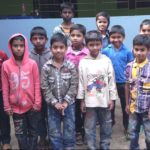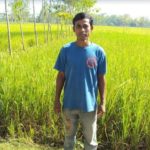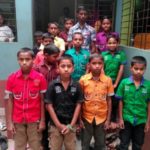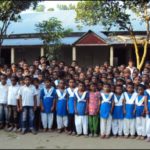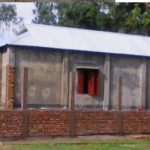Why so many orphans?
The country’s high population of orphans is a result of both parental death and child abandonment, both due to the extreme poverty and poor living conditions in a country with the highest population density in the world and where over 85% of the population lives on under $2 /day.
Many orphans are the result of maternal mortality, with death rates of 240 mothers out of every 100,000 births stemming from poor medical care, dilapidated infrastructure, and poorly equipped hospitals.
While New Hope orphanage is currently home to 12 boys from Vadun, Bangladesh, it is estimated that approximately 4.9 million children between the ages of 5-14 work, often in appalling conditions, and just over 50% of the population are under 15.
Why Build Schools?
Only 60% of the population of Bangladesh complete primary school, not because they can’t learn but because there may not be a school in the area or it’s inaccessible from remote places. Existing Government educational services are overcrowded with limited infrastructure and low paid teachers who generally have to supplement their income by tutoring. Some areas, eg some Chittagong villages, have no Government schools at all resulting in a literacy rate at 41%: 50% amongst males and 31% amongst females. Apart from this many of the communities cannot afford to educate their children.
More Schools, Please
New Hope Ministries Bangladesh Trust (NHMBT) aims to provide a school in each community and has put together a joint strategic plan with the Caleb Foundation Board, to increase the number of schools from 6 at the moment to 38 in a 10 year period. The major barrier to communities affording education facilities is the up-front set-up costs of the land, buildings, and furniture. In the majority of cases, if the facilities are made available, they will be able to cover the ongoing maintenance of the facility and teachers’ salaries. However in remote areas and slum districts the people will be unable to afford the ongoing costs so the Caleb Foundation proposes to continue funding these on-going costs and put in place self-sufficiency projects that best suit each individual community.
Giving Good Oversight
This project is to finance the provision of land, buildings, and furniture progressively for the set up of the schools in the first 4 years of the proposed 10-year plan. A local pastor, Pr Kalyan, who is a graduate in Mathematics will oversee the project and all teachers will be fully accredited and will teach the Bangladeshi National syllabus.
Teachers will not be permitted to tutor students as this gives rise to a potential conflict of interest. We currently have 23 communities we serve with 6 schools and these rules are strictly adhered to in all of them. With the additional 38 schools, the strategic 10-year plan envisages support for over 50 communities, the final goal being a school for every community.
Meeting the Bills
A Church in Korea has indicated that it would be willing to provide some funding towards the provision of buildings which would be used principally for primary schooling for all in the community irrespective of cultural, religious or financial background. The building will also provide very modest accommodation for the Pastor that oversees the school plus meeting facilities for the local community and church. It is hoped that over time the facilities would be used for local health education and employment education courses of an evening to improve health and the financial autonomy of each community.
The Goal – Self-sufficiency
The initial phase is to provide owned facilities for existing schools so that they can be self-sufficient and also to start new schools in existing communities. These schools will fill a gap in government education capability and provide opportunities for the children of the community to break the poverty cycle. This is a locally instigated and locally run project suited to local needs but we can carry some of the burden with our generous donations. Remember Bangladesh’s per capita income is only $70/month.


